#the silence 1963
Text
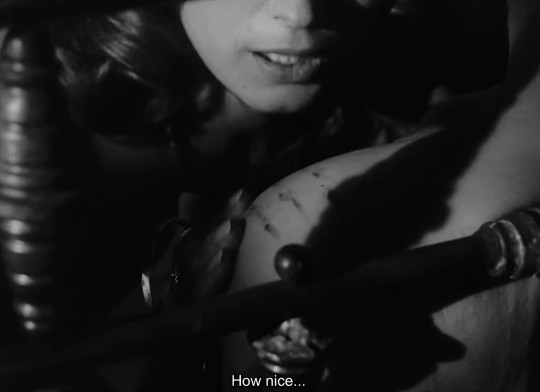

["The Silence", 1963]
#the silence#the silence 1963#tystnaden#tystnaden 1963#cinema#movies#films#movie scenes#film scenes#sweden#swedish cinema#ingmar bergman#black and white movies#black and white cinema
17 notes
·
View notes
Photo
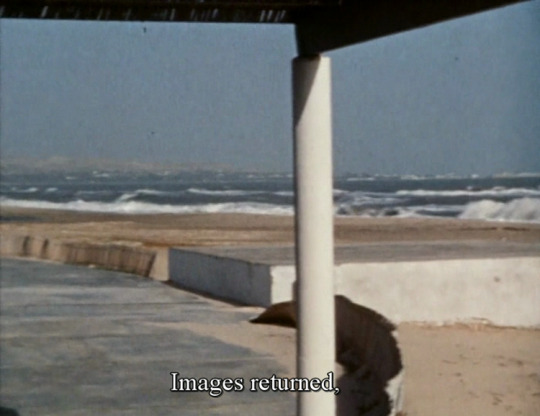


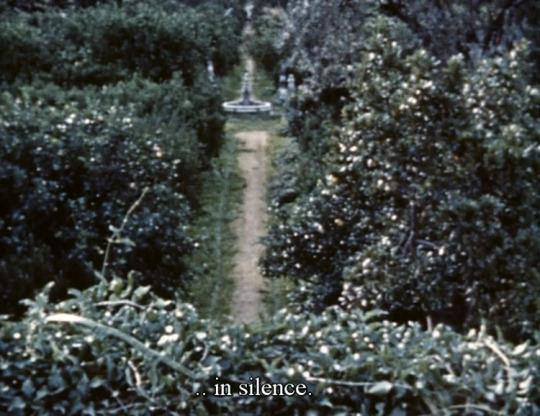
Méditerranée (Jean-Daniel Pollet, 1963)
405 notes
·
View notes
Text

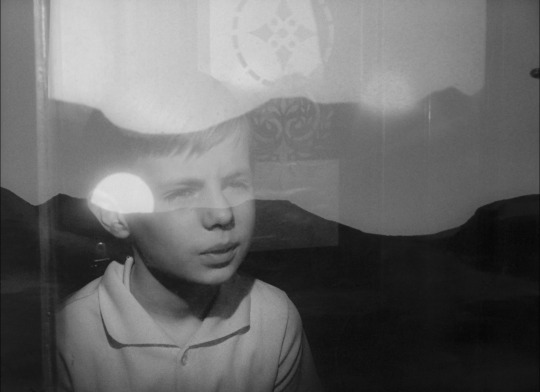
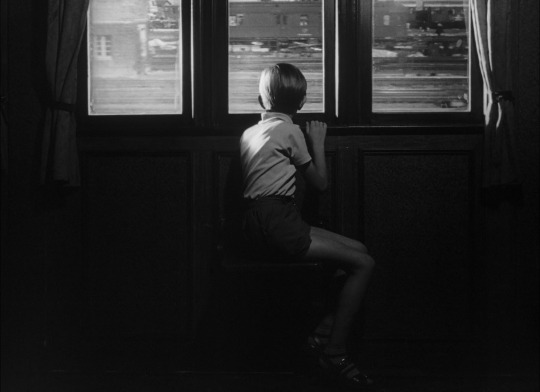

The Silence (Tystnaden, 1963)
Dir. Ingmar Bergman
46 notes
·
View notes
Text
#american film institute#afi#movie polls#thriller#the silence of the lambs#the birds#alien 1979#raiders of the lost ark#the french connection#north by northwest#psycho#jaws#jaws 1975#psycho 1960#alien#the birds 1963#alfred hitchcock#william friedkin#mia farrow
11 notes
·
View notes
Photo

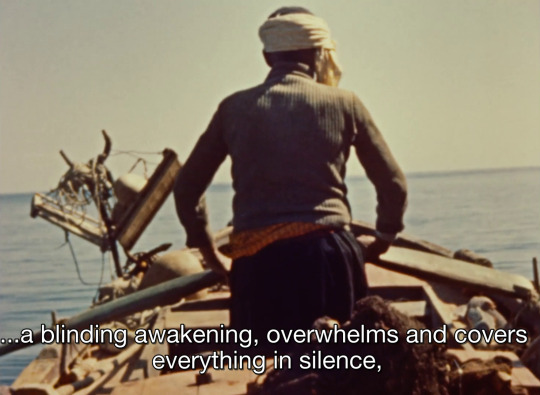

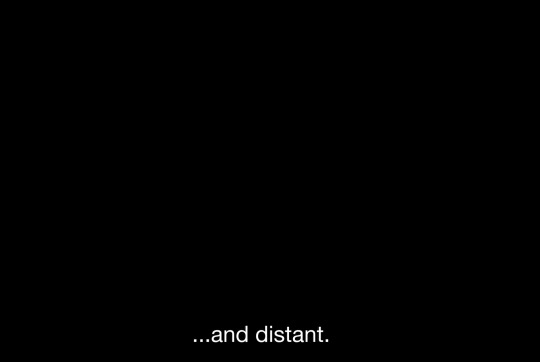
Jean-Daniel Pollet
- Méditerranée
1963
#jean daniel pollet#mediterranean#1963#light#sea#silence#blinding#méditerranée#Volker Schlöndorff#Volker Schlondorff#Mediterranee#Philippe Sollers#Barbet Schroeder#experimental film
131 notes
·
View notes
Text

The Silence (Tystnaden) (1963) - dir. Ingmar Bergman
27 notes
·
View notes
Photo
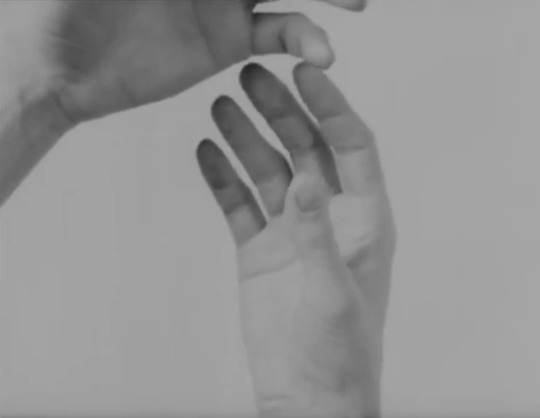


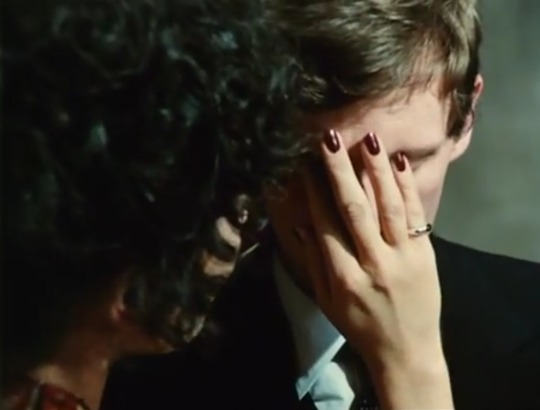

https://www.youtube.com/watch?v=5IPYxmGUX0Q&t=267s
*
...
pressefreiheit
https://youtu.be/DJlORJGlzG0
#aus dem leben der marionetten#ingmar bergman#münchen#1980#gaby dohm#rita russek#robert atzorn#the silence#1963#norealism#fellini#fassbinder#herzog#la femme publique#der rausschmeißer#the spiral staircase
5 notes
·
View notes
Text
#fans of obscure war drama il terrorista 1963 make some noise#also this film was so melville-esque (dead silence from my audience) oh well#my video#il terrorista
4 notes
·
View notes
Photo

Tystnaden/The Silence (1963 Sweden 96 mins)
Prod Co: Svensk Filmindustri (SF) Prod: Allan Ekelund Dir, Scr: Ingmar Bergman Phot: Sven Nykvist Ed: Ulla Ryghe Art Dir: P. A. Lundgren Mus: Ivan Renliden
Cast: Ingrid Thulin, Gunnel Lindblom, Jörgen Lindström, Håkan Jahnberg, Birger Malmsten
Le Silence est l'un des films les plus importants et les plus parfaits d'Ingmar Bergman, marquant un point culminant dans son expérimentation formelle distinctive, défiant le discours thématique et fomentant un affect spectateur radicalement intime. Malgré des défis esthétiques et conceptuels considérablement accrus, le film a été un succès substantiel au box-office à l'époque (le dernier de Bergman jusqu'à Viskningar och rop / Cries and Whispers en 1972) en grande partie en raison de la controverse majeure qui a éclaté sur sa sexualité assez explicite.(1) . Défiant à la fois le public et les lois de censure dans le monde entier, The Silence a également offert des signes importants pour l'avenir, à la fois dans le propre travail de Bergman - notamment en regardant le modernisme accru et la dissolution du sujet de Persona (1966) - et celui d'autres (comme David Lynch et Peter Greenaway). À la fois marqué par et contribuant à son moment cinématographique historique, le film peut également être considéré comme exemplaire du cinéma d'art européen du début des années 60 : dans sa mise en scène évocatrice dominé par l'héritage européen en ruine d'un hôtel baroque fané ; expression sexuelle « libérale » mais complexe et conflictuelle ; forme esthétique raisonnablement abstraite qui oblige le spectateur à interpréter des images souvent très ambiguës ; et le traitement thématique de la culture et des sujets de la modernité occidentale contemporaine comme conceptuellement et existentiellement en crise.
(via OK)
https://www.sensesofcinema.com/2009/cteq/silence/
5 notes
·
View notes
Text
The Silence of the Lambs & Psycho were interesting to watch, I haven’t seen a lot of psychological thrillers, they were good- especially Psycho, so good
#psycho#psycho 1963#silence of the lambs#the silence of the lambs#thriller#thrillers#psychological thriller#psychological thrillers
1 note
·
View note
Text
"The Silence" 1963



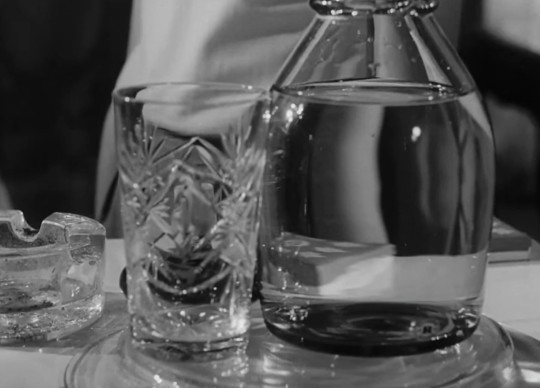

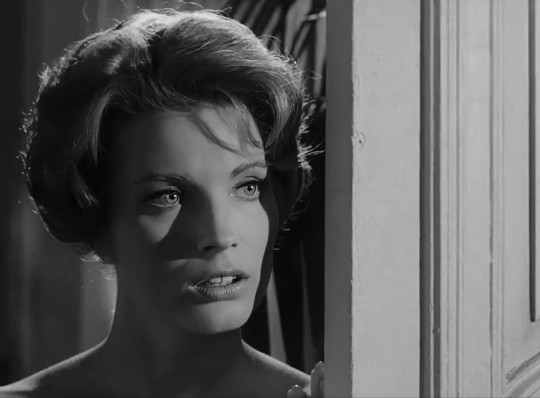

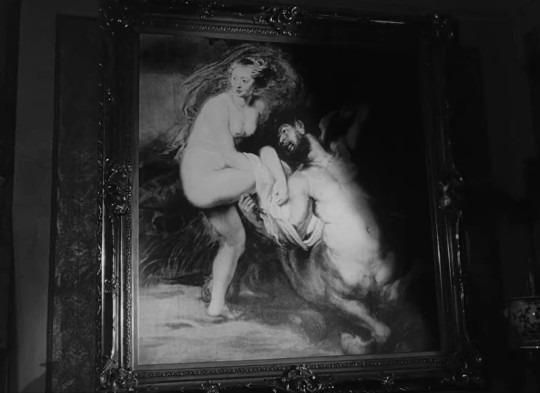
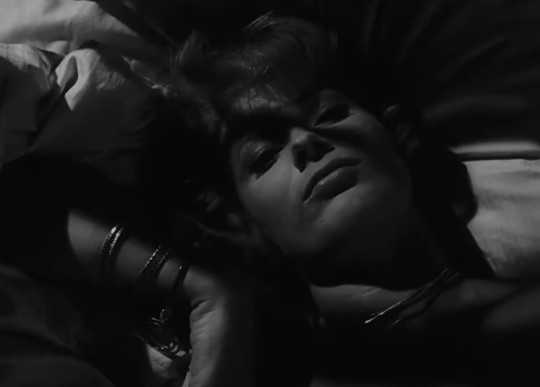
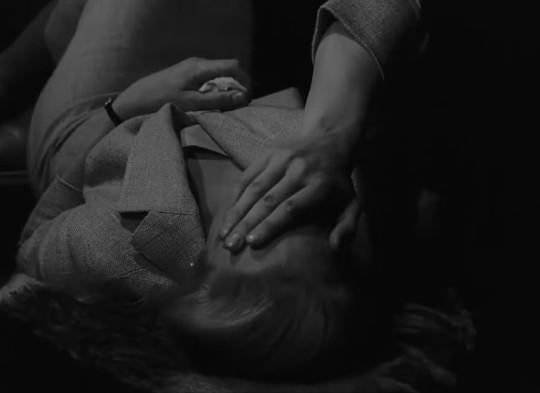
#the silence#the silence 1963#tystnaden#cinema#movies#films#movie scenes#film scenes#sweden#swedish cinema#ingmar bergman#black and white cinema#black and white movies#cinematography
12 notes
·
View notes
Text
Your silence has been with me and I have let it have its say.
Anne Sexton, from ‘A Self-Portrait in Letters’ — Brother Dennis Farrell, 2nd August 1963
1K notes
·
View notes
Text
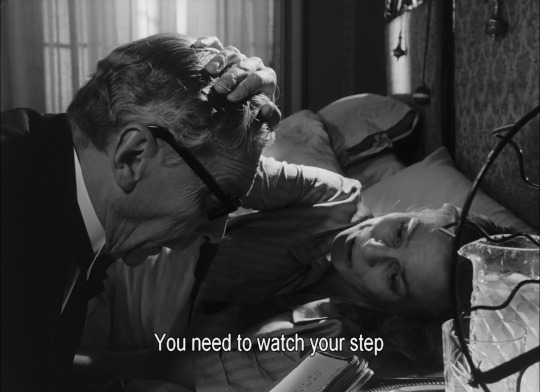

The Silence (Tystnaden, 1963)
Dir. Ingmar Bergman
2 notes
·
View notes
Text
Intro to Anti-transmasculinity (ATM)
(also ft. an about me section)
Defining ATM:
Anti-transmasculinity refers to the systematic oppression of transmasculinity. “Transmasculinity” refers to the concept of people seen as female having a masculine or manly gender or gender expression*. Other terms used for this are transandrophobia, transmisandry, and transmascphobia.
In 1963, feminist Betty Freidan described misogyny as “the problem with no name,” illustrating how at the time, women’s language to understand, describe and communicate their oppression was underdeveloped. Anti-transmasculinity has been, similarly, a problem with no name; transmasculine people have not had the language or framework to understand, describe, and communicate our oppression. Transmasculinity suffers from erasure, often called “invisibility”. This does not protect transmasculine people from violence; it silences us to prevent us from speaking out against, or realizing, the violence done to us. It alienates us from our history, our brothers, siblings and sisters, and ourselves, by preventing transmasculinity from being seen, heard, discussed, or considered. For more posts of mine and others that help expand on the theory of anti-transmasculinity, see my #theory tag.
*This is not my definition of transmasculinity as an identity. This definition is for the form of transness targeted by transphobia, which is based around the idea of "female/woman trying to be male/a men." My definition of transmasculinity as an identity is any form of masculinity or manhood that is trans* in nature, regardless of presentation or assigned sex. I make this distinction because a GNC man assigned male could see his manhood as trans, but be targeted by transphobia based around the idea of a man trying to be a woman.
Who can be affected by ATM?:
Anyone can suffer from anti-transmasculinity, regardless of gender, sex or sexuality. Anti-transmasculine violence targets perceived transmasculinity, which means anyone perceived as transmasculine can be victimized. That is not the extent of how people are affected, though; people who perceive themselves to be transmasculine, consciously or unconsciously, or who have traits associated with transmasculinity can also be affected by witnessing anti-transmasculinity.
(TW: transphobic murder)
People who are associated with transmasculinity (such as partners, friends, and family of transmasculine people) can also be affected, not just through emotional pain but targeted for physical violence. As an example, Italian cis woman Maria Paola Gaglione was murdered by her brother to "teach her a lesson" after she got engaged to a trans man.
Who can be anti-transmasculine?:
Anyone can be anti-transmasculine, regardless of gender, sex, or sexuality. It is a systemic way of thinking that is spread throughout society and culture, and reproduces itself constantly in people's thoughts and actions.
Who benefits from anti-transmasculinity?:
In the grand scheme of things, everyone suffers from the restrictive nature of transphobia. However, in general, only cisgender, gender-conforming people systematically benefit from anti-transmasculinity. Other trans* people do not; trans* people do not systematically benefit from each other’s oppression.
* *trans is a way of writing “trans” that emphasizes it as a broad umbrella term inclusive of everyone who trangresses gender and sex norms
Is ATM caused by “misandry”?
In transunity theory, “misandry” is used to refer to the way that gender roles around manhood/masculinity are weaponized to harm marginalized people, (in this case) specifically trans* people; trans* people are viewed as having the worst traits of both masculinity and femininity, as well as the inherent negativity associated with androgyny. In this sense, anti-transmasculinity does involve misandry, as do anti-transfeminity* and exorsexism**. However, all of these also involve misogyny and misandrogyny***. Which one of these is more dominant varies between types of transphobia, as well as the individuals doing the violence and the ones experiencing it.
To quote this article, "Misandry [...] can never reliably be prevented from collapsing into transphobia."
*i use anti-transfemininity (ATF) as a companion to anti-transmasculinity, as an alternative to “transmisogyny.” This is because, as I explain, my philosophy on transphobia is that all transphobias are inherently misogynistic and all trans* people experience the intersection of misogyny. Additionally, transunity theory frames transphobia as being the intersection of many forms of gendered bigotry, so using the “anti-” terms lets me talk about these transphobias without having to specify it by only one kind (like -misogyny or -androphobia)
** exorsexism refers to oppression of people who violate the gender or sex binaries; it includes intersexism, but also oppression against non-binary people.
*** misandrogyny is the hatred of/bigotry against androgyny, a companion to misogyny and misandry. “androgyny” here refers to anything outside the exclusive male/female binary; examples of misandrogyny are violence done when someone cannot tell someone’s gender/sex, and the idea of nonbinary and genderqueer language as immature, annoying, and pointless, while binary language is considered mature, normal, and useful.
Evidence of ATM:
I have the tags #examples of transandrophobia and #experiences with transandrophobia; the first is posts showing transandrophobia in action, and the second is people describing the transandrophobia they have experienced or witnessed.
I also keep the Archive of Violence Against Trans*masculine People, which keeps a record of events of anti-transmasculine violence. This includes murder, rape, abuse, physical assault, harassment, and the suicides of transmasculine people. Also on this archive is a list of academic research & writing related to anti-transmasculinity; the studies provide more objective evidence of the systemic oppression transmasculine people face, and analyses which can help with understanding how anti-transmasculinity works.
You can also look at @transandrophobia-archive which collects examples of anti-transmasculine Tumblr posts.
Info on Me:
I’m genderqueer, transsexual, and a transvestite; I am a man and a woman and neither (all of which affect each other), and identify with both transmasc, transfem, and transother. I’m also aromantic + greysexual. My sexuality is everything everywhere all at once.
Originally this blog was just made for me to process and deal with my own internalized anti-transmasculinity, but then people liked what I wrote and now its a place where I talk about queer issues & related things I find important.
I’m multiply disabled (both physically and mentally) and I struggle with answering asks; if I don’t answer you for a while feel free to just send your ask again, I will not mind. Also feel free to ask me to explain anything in plain language if you have difficulty understanding something. I don’t mind educating people or helping people find resources, as long as you are respectful and are in good faith and all that.
I am going into philosophy and sociology with a focus on religion, and run @transtheology where I collect posts on trans-affirming spirituality and religion. If you have any questions or want advice related to transness and spirituality/religion (or madness & spirituality/religion) I’d love to help you the best I can.
If you would like to support me, here’s my kofi
Further Resources:
""Transandrophobia" Primer" by nothorses
"As a transfem, what's your insight on the way transmascs are treated when talking about their experiences?" by cipheramnesia
"This is just your regular free-of-charge reminder that when people argue that transandrophobia does not exist, or that its not important enough to talk about, they are explicitly saying they don't care about sexual assault victims or victims of suicide (among other things)" by nothorses
"Transandrophobia Posts Masterpost- 2022" by transgentlemanluke
Pinned post with links to discussions about transandrophobia, baeddelism, and other issues by nothorses
"What is transandophobia actually?" by transmasc-pirate, with additions by doberbutts and psychoticallytrans
"Transandrophobic Fundamentals and the Intersections of Trans Masc Marginalization" by none-gender-left-man
"Hello, I apologise if you've already received questions like this, but can you explain why you would say that transmisandry/androphobia is distinct from misogyny?" by transfaguette
"I Am A Transwoman. I Am In The Closet. I Am Not Coming Out." by Jennifer Coates
This conversation between doberbutts and folly-of-alexandria
Transandrophobia Explained carrd, by myself
Transmisogyny is not the intersection of transphobia and misogyny by luckyladylily
This post on misogyny, misandry, and transandrophobia by thorne1345
"tumblr can make fun of Blizzard’s Oppression Calculator all they want, that’s exactly how people act with discourse poisoned queer discussions" by cardentist
Invisible Men: FTMs and Homelessness in Toronto by the FTM Safer Shelter Project Research Team
On Hating Men (And Becoming One) by Noah Zazanis
There is a hidden epidemic of violence against transmasculine people by Orion Rodriguez
“Irl we just kiss”: ‘transmasc vs transfem’ discourse & reactionary ‘boys vs girls’ politics in trans spaces by S.L Void
Making Sense Out of the Murders of Trans Men by Mitch Kellaway
Collateral Damage: mathematical odds & the sum of survival. by S.L Void
Op-ed: Trans Men Experience Far More Violence Than Most People Assume by Loree Cook-Daniels
How the Criminalization of Testosterone Attacks Gender Variant People by Adryan Corcione
A Tale of a Trans Man in Pakistan by Ikra Javed
Not transmasc invisibility, but erasure: intricacies of transmasc invisibility, and the fallacies of strictly gendered transphobia by S.L Void
Girlboy Boygirl Blues: antitransmasculinity as a denial of individual history & more by S.L Void
The r/transandrophobia subreddit
#m.#finally a new pinned post#transandrophobia#transmisandry#anti transmasculinity#transunity#experiences with transandrophobia#examples of transandrophobia#theory#transmasc history#transmasc art#transmasc media
462 notes
·
View notes
Text
Quotes about John Lennon’s sexuality
This is just a reference post for convenience, not an analysis (but I’ve added some comments here and there). This is extremely long with a lot of quotes! And where there's smoke there's fire, imo.
John's (internalized) homophobia: Starting with this topic to provide context & contrast to the rest of this post
At the party the boys’ old friend Bob Wooler, the Cavern emcee, made a crack to John about his holiday. John, who’d had plenty to drink, exploded. He leapt on Bob, and by the time he was dragged off Bob had a black eye and badly bruised ribs. I took John home as fast as I could, and Brian drove Bob to the hospital.
I was appalled that John had lashed out again. I’d thought those days were over. But John was still livid, muttering that Bob had called him a queer.
Cynthia Lennon, John
[Bob Wooler had] insinuated that me and Brian had had an affair in Spain. I was out of me mind with drink. You know, when you get down to the point where you want to drink out of all the empty glasses, that drunk. And he was saying, ‘Come on, John, tell me’ – something like that – ‘Tell me about you and Brian, we all know.’ And obviously I must have been frightened of the fag in me to get so angry. You know, when you’re twenty-one, you want to be a man, and all that. If somebody said it now, I wouldn’t give a shit.
John Lennon, John Lennon: For The Record, Peter McCabe and Robert D Schonfeld
“The Beatles’ first national coverage was me beating up Bob Wooler at Paul’s 21st party because he intimated I was homosexual. I must have had a fear that maybe I was homosexual to attack him like that and it’s very complicated reasoning. But I was very drunk and I hit him and I could have really killed somebody then. And that scared me… That was in the Daily Mirror, it was the back page…”
John Lennon, talking about a (one sided) fight he had with Cavern DJ Bob Wooler at Paul’s 21st birthday party in 1963.
Everyone in Liverpool knew that Epstein was gay, and some kid in the audience screamed, ‘John Lennon’s a fucking queer!’ And John – who never wore his glasses on stage – put his guitar down and went into the crowd, shouting, ‘Who said that?’ So this kid says, ‘I fucking did.’ John went after him and BAM, gave him the Liverpool kiss, sticking the nut on him – twice! And the kid went down in a mass of blood, snot and teeth. Then John got back on the stage. ‘Anybody else?’ he asked. Silence. ‘All right then. “Some Other Guy”.’”
Lemmy Kilmister, White Line Fever: The Biography. (2004)
“Victim in 1961 was one of the first British films to deal properly and thoughtfully with the subject. Dirk Bogarde welcomed the opportunity to play the homosexual barrister, and there were some very tense scenes between him and his wife, Sylvia Syms. In one scene, Dirk Bogarde lifts his garage door at the back of the mews to discover that someone has painted graffiti about him on the wall. The Beatles were sitting together at a Cavern lunchtime session and John Lennon, who was talking to Paul and George, was making biting remarks about Victim, which was on at the Odeon. I knew by then that Brian was what he was, and I thought, ‘Well, I am surprised at John, who is 21 and a young man of the world.’ He was making such nasty, puritanical observations, but I never said anything as they didn’t know that I was listening.”
Bob Wooler, c/o Spencer Leigh, The Best of Fellas: The Story of Bob Wooler. (2002)
If somebody is going to manage me, I want to know them inside out. He told me he was a fag.
I like “Honky Tonk Woman” but I think Mick’s a joke, with all that fag dancing, I always did
I think its concept is revolutionary, and I hope it’s for workers and not for tarts and fags.
I don’t know about the “history”; the people who are in control and in power, and the class system and the whole bullshit bourgeoisie is exactly the same, except there is a lot of fag middle class kids with long, long hair walking around London in trendy clothes
I don’t dig that junkie fag scene he lives in; I don’t know whether he lives like that or what.
Casual homophobia in Lennon Remembers (Notable for the increase in homophobic language post-primary scream therapy, here is some interesting speculation about how these two things are related)
The violence that had been building inside John Lennon all night came bursting out the moment he left the studio. It struck so fast and unexpectedly that it stunned May Pang. She recalled that John was walking unsteadily toward the parking lot when suddenly he cast a drunken look over his shoulder at Jesse Ed Davis. Running over to him, Lennon gave Jesse Ed a passionate kiss on the mouth. Not to be outdone, Jesse Ed grabbed John and kissed him back. Lennon screamed, “F****t!” — and knocked Jesse flat on his ass.
The Lives of John Lennon by Albert Goldman (May Pang, describing an incident during the recording of Rock 'n' Roll in 1973: p.564)
It turned into a full-on fight. John was incredibly strong! He got me in some kind of a hold behind my back that I could not get out of, like a full nelson. And he started to kiss me on the mouth! He was laughin’ and kissin’ me on the mouth. I was strugglin’ to git away and I couldn’t git away. Then he stuck his tongue in my mouth. God! So I bit him. Bit him on the tongue. That pissed him off. So he grabbed the marble ashtray that we couldn’t break and banged me on the head. Knocked me cold.
The Lives of John Lennon by Albert Goldman (a direct quote from Jesse Ed Davis about a different night: p. 576-577)
Alternatively, he could be openly supportive:
Why make it sad to be gay?
Doing your thing is O.K.
Our bodies our own
So leave us alone
Go play with yourself – today.
A poem submitted for Len Richmond and Gary Noguera's Gay Liberation Handbook, on 30 May 1972
John spreading rumours: John (and Yoko) had a propensity for intentionally spreading rumours about his sexuality, with many people claiming that he found it funny. Multiple people refused to believe his own words about his experiences or willingness with men.
John told me he had had a one-night stand with Brian, on a holiday with him in Spain, when Brian had invited him out, a few days after the birth of Julian in 1963, leaving Cyn alone. I mentioned this brief holiday in the book, but not what John had alleged had taken place. Partly, I didn't really believe it, though John was daft enough to try almost anything once. John was certainly not homosexual, and this boast, or lie, would have given the wrong impression. It was also not fair on Cynthia, his then wife.
Hunter Davies, The Beatles: The Authorised Biography (updated edition, 2010)
John himself said he finally allowed Brian to make love to him “to get it out of the way.” Those who knew John well, who had known him for years, don’t believe it for a moment. John was aggressively heterosexual and had never given a hint that he was anything but.
Tony Bramwell, Magical Mystery Tours: My Life With The Beatles, 2014
John roared with laughter at the rumours that began afterwards. Typically, he encouraged the stories that he and Brian were gay lovers because he thought it was funny and John was one of the world’s great wind-up merchants. He told me afterwards in one of our frankest heart-to-hearts that Brian never seriously did proposition him. He had teased Brian about the young men he kept gazing at and the odd ones who had found their way to his room. Brian had joked to John about the women who hurled themselves at him. ‘If he’d asked me, I probably would have done anything he wanted. I was so much in awe of Brian then I’d have tried a night of vice-versa. But he never wanted me like that. Sure, I took the mickey a bit and pretended to lead him on. But we both knew we were joking.
Alistair Taylor, With The Beatles, 2003
Years later, John finally came clean about what had happened: not to anyone who’d been around at the time, but to the unshockable woman with whom he shared the last decade of his life. He said that one night during the trip, Brian had cast aside shyness and scruples and finally come on to him, but that he’d replied, “If you feel like that, go out and find a hustler.” Afterward, he had deliberately fed Pete Shotton the myth of his brief surrender, so that everyone would believe his power over Brian to be absolute.
Philip Norman, John Lennon: The Life, 2008
The next night Elliot [Mintz] took us out with a friend of his, Sal Mineo, and we all went to a gay cabaret/discotheque. John was oblivious to the gay ambience. He was curious about everyone’s sexuality and liked to gossip about who was sleeping with whom, whether they were gay or straight. John made no judgements about homosexuality but was really curious about who was and who wasn’t gay.
He knew that his appearance at a gay club might start rumors about his own sexuality, and it made him laugh. He told me that there had been rumors about him and his first manager, Brian Epstein, and that he usually didn’t deny them. He liked the fact that people could be titillated by having suspicions about his masculinity. Then I was the one who was laughing. “How could anyone believe a man who likes women as much as you do is gay?” I told him.
May Pang’s Loving John (1983).
Q. Have you ever fucked a guy?
A. Not yet, I thought I’d save it til I was 40, life begins at 40 you know, tho I never noticed it.
Q. It is trendy to be bisexual and you’re usually ‘keeping up with the Jones’, haven’t you ever… there was talk about you and PAUL…
A. Oh, I thought it was about me and Brian Epstein… anyway, I’m saving all the juice for my own version of THE REAL FAB FOUR BEATLES STORY etc.. etc..
John Lennon self interview for Andy Warhol’s Interview Magazine (November 1974).
John: Yes, all your best friends let you know what's going on. I was trying to put it 'round that I was gay, you know-- I thought that would throw them off... dancing at all the gay clubs in Los Angeles, flirting with the boys... but it never got off the ground.
Q: I think I've only heard that lately about Paul.
John: Oh, I've had him, he's no good. [Laughter]
John Lennon, interviewed by Lisa Robinson for Hit Parader: A conversation with John Lennon (December 1975).
“It’s great,” Ono laughs. “I mean, both John and I thought it was good that people think we were bisexual, or homosexual.” She laughs again.
“Uh, well, the story I was told was a very explicit story, and from that I think they didn’t have it [sex],” Ono tells me. “But they went to Spain, and when they came back, tons of reporters were asking, ‘Did you do it, did you do it?’ So he said, ‘I did it.’ Isn’t that amazing? But of course he would say that. I’m sure Brian Epstein made a move, yeah.”
And Lennon said no to Epstein?
“He just didn’t want to do it, I think.”
Yoko Ono: I Still Fear John’s Killer by Tim Teeman for the Daily Beast (13 October 2015).
Over dinner the Wenners learned the secrets of the Beatles kingdom from Ono, who would often suggest to Wenner that John Lennon was gay. “She’s always hinted that there was some gay component to John,” said Wenner, “but in a vague or generalized way, like, ‘Isn’t everybody gay?’ Or, ‘I always told John he was gay.’ ” (She also told McCartney this theory after Lennon died, which he didn’t believe.)”
Joe Hagan, Sticky Fingers: The Life and Times of Jann Wenner & Rolling Stone Magazine. (2017)
On the other hand, he supposedly hated the rumours:
Claims have been made since that Brian and John had a gay relationship. Nothing could be further from the truth. John was a hundred per cent heterosexual and, like most lads at that time, horrified by the idea of homosexuality.
It was a holiday John came to regret because it sparked off a string of rumours about his relationship with Brian. He had to put up with sly digs, winks and innuendo that he was secretly gay. It infuriated him: all he'd wanted was a break with a friend, but it was turned into so much more.
Cynthia Lennon, John, 2005
And I just went on holiday. I watched Brian picking up the boys. I like playing a bit faggy, all that. It was enjoyable, but there were big rumours in Liverpool, it was terrible. Very embarrassing. Rumors about you and Brian? Oh, fuck knows—yes, yes. I was pretty close to Brian because if somebody's going to manage me, I want to know them inside out.
John Lennon, Jann S. Wenner, Lennon Remembers, 1970
Unfortunately, certain Liverpool acquaintances (who had no way of knowing that there was a kernel of truth to their allegations) wouldn't let John hear the end of it. All in good fun, no doubt, but John was still too enamored of his macho self-image to take lightly any inference that he was anything less than 100 percent heterosexual.
The Beatles, Lennon, and me - Pete Shotton
John's comments about his sexuality:
It’s just handy to fuck your best friend. That’s what it is. And once I resolved the fact that it was a woman as well, it’s all right. We go through the trauma of life and death every day so it’s not so much of a worry about what sex we are anymore.
John Lennon, interview w/ Jonathan Cott for Rolling Stone: Yoko Ono and her sixteen-track voice. (March 18th, 1971)
I just realized that [Yoko] knew everything I knew, and more, probably, and it was coming out of a woman’s head. It just sort of bowled me over, you know? And it was like finding gold or something. To find somebody that you can go and get pissed with, and have exactly the same relationship as any mate in Liverpool you’d ever had, but also you could go to bed with him, and it could stroke your head when you felt tired, or sick, or depressed. It could also be Mother. And obviously, that’s what the male-female – you know, you could take those roles with each other.
John Lennon, interview w/ Peter McCabe and Robert D. Schonfeld c/o Peter McCabe and Robert D. Schonfeld, John Lennon: For The Record. (September 5th, 1971)
It’s a plus, it’s not a minus. The plus is that your best friend, also, can hold you without… I mean, I’m not a homosexual, or we could have had a homosexual relationship and maybe that would have satisfied it, with working with other male artists. [faltering] An artist – it’s more – it’s much better to be working with another artist of the same energy, and that’s why there’s always been Beatles or Marx Brothers or men, together. Because it’s alright for them to work together or whatever it is. It’s the same except that we sleep together, you know? I mean, not counting love and all the things on the side, just as a working relationship with her, it has all the benefits of working with another male artist and all the joint inspiration, and then we can hold hands too, right?
John Lennon, interview w/ Sandra Shevey. (Mid-June?, 1972)
I was on holiday with Brian Epstein in Spain, where the rumours went around that he and I were having a love affair. Well, it was almost a love affair, but not quite. It was never consummated. But it was a pretty intense relationship.
It was my first experience with a homosexual that I was conscious was homosexual. He had admitted it to me. We had this holiday together because Cyn was pregnant, and I went to Spain and there were lots of funny stories. We used to sit in a cafe in Torremolinos looking at all the boys and I’d say, ‘Do you like that one, do you like this one?’ I was rather enjoying the experience, thinking like a writer all the time: I am experiencing this, you know.
John Lennon, Rolling Stone, 1980
I was thinking, if only I could get out of Liverpool, be famous and rich, that would be great. I’ve always wanted to be a famous artist, you know? Possibly I’d have to marry a very rich old lady… or man, you know… to… to look after me while I did my art. But then Rock & Roll came and I thought ‘Ah, this is the one’, so I didn’t have to marry anybody or live with them, you know?
John Lennon interview
There was even some discussion, albeit not very serious, of whether he should stick to his own gender. “John said ‘It would hurt you like crazy if I made it with a girl. With a guy, maybe you wouldn’t be hurt, because that’s not competition. But I can’t make it with a guy because I love women too much, and I’d have to fall in love with the guy and I don’t think I can.’”
John Lennon: The Life
I look at early pictures of meself, and I was torn between being Marlon Brando and being the sensitive poet – the Oscar Wilde part of me with the velvet, feminine side. I was always torn between the two, mainly opting for the macho side, because if you showed the other side, you were dead.
John Lennon, December 5th, 1980
“John believed in my work as an artist wasn’t accepted in part because I am a woman. He got angry when people said about me, “She’s not a woman, she’s a female impersonator.” John said to me, “If I had been gay and gotten together with a guy who was talented like you, after ten years that guy would have become famous as an artist in his own right. Maybe we should come out and say, ‘Actually, Yoko is a guy.’ Maybe that will do it!”
Yoko Ono, interview w/ Jon Wiener, c/o Jon Wiener, Come Together: John Lennon In His Time. (1984)
In this intense, intimate and revealing original cassette recording of a private conversation in 1969 between John Lennon and Yoko Ono, the couple speaks primarily about Yoko’s past relationships, her music and art, and their random views on sex, love, promiscuity, and homosexuality. […] [Lennon] adds that he had never met an attractive woman that had sexually aroused him to any great degree.
Description of the 45-minute audiotape auctioned in 2009 by Alexander Autographs.
Yoko's comments about his sexuality:
“Well, that’s another thing. John and I had a big talk about it, saying, basically, all of us must be bisexual. And we were sort of in a situation of thinking that we’re not [bisexual] because of society. So we are hiding the other side of ourselves, which is less acceptable. But I don’t have a strong sexual desire towards another woman.”
Did Lennon have sex with other men?
“I think he had a desire to, but I think he was too inhibited,” says Ono.
“No, not inhibited. He said, ‘I don’t mind if there’s an incredibly attractive guy.’ It’s very difficult: They would have to be not just physically attractive, but mentally very advanced too. And you can’t find people like that.”
So did Lennon ever have sex with men?
“No, I don’t think so,” says Ono. “The beginning of the year he was killed, he said to me, ‘I could have done it, but I can’t because I just never found somebody that was that attractive.’ Both John and I were into attractiveness—you know—beauty.”
Yoko Ono: I Still Fear John’s Killer by Tim Teeman for the Daily Beast (13 October 2015).
"As mild and oblique as the comment was [Paul's "You took your lucky break and broke it in two" line from "Too Many People"], it seemed to cut John to the heart. On top of the questionnaire inside theMcCartney album and the lawsuit, it was like the tipping point between a divorcing couple that turns love into savage, no-holds-barred hostility. Indeed, John's wounded anger was more that of an ex-spouse than ex-colleague, reinforcing a suspicion already in Yoko's mind that his feelings for Paul had been far more intense than the world at large ever guessed. From chance remarks he had made, she gathered there had even been a moment where - on the principle that bohemians should try everything - he had contemplated an affair with Paul, but had been deterred by Paul's immovable heterosexuality. Nor, apparently, was Yoko the only one to have picked up on this. Around Apple, in her hearing, Paul would sometimes be called John's princess. She had also once heard a rehearsal tape with John's voice calling out "Paul ... Paul ... " in a strangely subservient, pleading way. "I knew there was something going on there," she remembers. "From his point of view, not from Paul's. And he was so angry at Paul, I couldn't help wondering what it was really about.""
Philip Norman, John Lennon: The Life, 2008
I’m sure that if he had been a woman or something, he would have been a great threat, because there’s something definitely very strong with me, John, and Paul.
Yoko Ono, Revolution Tape, June 4th 1968
Friends & acquaintances comments on his sexuality:
I realised I was probably bisexual; there was nothing to be ashamed of in this – John Lennon had reputedly spoken to mutual friends of his own experiments.
Who I Am: A Memoir, Pete Townshend 2012
PAUL: There were lots of people asking cheeky questions, and they were always saying, “Well, why–have you ever tried homosexuality, John?” You know, they always used to ask all that kind of stuff. I remember John saying to them, “No, I’ve never met a fella I fancy enough.” And that was his kind of opinion. You know, “I may go–I may be gay one day, if some fella really turns me on.” He was–he was that open about it. But as far as I was concerned, I slept in a million hotel rooms–as we all did–slept in a million places with John, and there was never any hint of it.
December 24th, 1983: interview with DJ Roger Scott
“And you, Icke?” asked Paul. “Who’s your favourite author?”
“Henry Miller. I think he’s very good,” I said.
In that moment John suddenly looked over at me. Until then he had been watching Bettina, the bar lady, rinsing glasses and tidying up the bar, with his typical somewhat blasé expression. Our discussion hadn’t seemed to interest him much. Now he was looking directly into my eyes. Quietly and without taking his eyes off me, he walked around the whole counter over to me, planted a kiss on my mouth and went back to his spot. At first, I was quite surprised and didn’t know what to do about it, then I found it rather funny and thought little of it. A few days later, it happened again. I happened upon* him in the hallway behind the stage and again he took my hand and kissed me. At some point the thought occurred to me, “man, he thinks I’m gay, but I can’t help him with that.” What was really going on, I don’t know. Maybe he meant the kisses as overtures; he was even treated as a closet case by homosexuals.
Hans-Walther (Icke) Braun (a friend of the Beatles in Hamburg)
"What happened," John explained, "is that Eppy just kept on and on at me. Until one night I finally just pulled me trousers down and said to him: 'Oh, for Christ's sake, Brian, just stick it up me fucking arse then.'
"And he said to me, 'Actually, John, I don't do that kind of thing. That's not what I like to do.'
"'Well,' I said, 'what is it you want to do, then?'
"And he said, 'I'd really just like to touch you, John.'
"And so I let him toss me off."
And that was that. End of story.
"That's all, John?" I said. "Well, so what? What's the big fucking deal, then?"
"Yeah, so fucking what! The poor bastard. He's having a fucking hard enough time anyway." This was in reference to the "butch" dockers who, on several recent occasions, had rewarded Brian's advances by beating him to a bloody pulp.
"So what harm did it do, then, Pete, for fuck's sake?" John asked rhetorically. "No harm at all. The poor fucking bastard, he can't help the way he is."
"No need to get so worked up," I said. "You know I don't give a shit. What's a fucking wank between friends anyway?"
Pete Shotton, Nicholas Schaffner, John Lennon: In My Life, 1983
I think he was trying to find himself a… what he’d call a soulmate. Someone who had as mad ideas as he had. I think he felt that she had the talent… but that’s debatable. But he needed that— he didn’t need a ‘mumsie’ partner at that point. He needed a mate. And I think he actually said, at some stage, in an interview that, you know— She’s the nearest thing to a man — a mate; man — that he’s ever had in a woman.
Cynthia Lennon, interviewed by Alex Belfield for BBC Radio (2006).
Paul wrote to me from the Star Club in Hamburg once, a great letter, it even had doodles on the front of it, but it was stolen.
He said that in one of the clubs one night John Lennon ended up with a stunning, exotic-looking woman—only to discover on closer inspection that she was a he, which all the other Beatles found hilarious.
Sue Johnston (actress), The Mirror. (August 23rd, 2011)
Though raised amid the same homophobia as his companions, John seemed totally unshocked by St Pauli’s abundant drag scene; indeed, he often seemed actively to seek it out. ‘There was one particular club he used to like,’ Tony Sheridan remembers, ‘full of these big guys with hairy hands, deep voices—and breasts. But they used to make an effort to talk English. There was something about the place that seemed to make John feel at home.’
In John Lennon: The Life by Philip Norman (2008).
“We’d read all these things about leather and we didn’t have any leather but I had my oilskins and we had some polythene bags from somewhere. We all dressed up in them and wore them in bed. John stayed the night with us in the same bed. I don’t think anything very exciting happened and we all wondered what the fun was in being ‘kinky’. It was probably more my idea than John’s.”
Royston Ellis
In the same book Pauline speculates, sensationally, that John and her brother had a homosexual relationship. ‘I have known in my heart for many years that Stuart and John had a sexual relationship,’ she writes, though she fails to provide any firm evidence. Pauline wonders whether this ‘relationship’ was the real cause of the antagonism between Paul and Stu.
Fab, An Intimate Life of Paul McCartney
Journalist & author comments on his sexuality:
“No, he wasn’t sexually attracted to Paul. Paul was very very pretty, but he actually wasn’t someone who made gay men fancy him. John was much more likely to make a gay man like Brian Epstein because John seemed so straight, there was nothing sort of girly about John at all. But John wanted to be, in his mind, a real artist, that is someone who painted and did sculpture. And he thought that a real artist or he called it a bohemian, should be open to all experiences. He should perhaps have a homosexual experience. Who was around? Paul was around. They used to share beds you know, in these cheap hotels when they would go around with the Beatles. There was never any question of Paul ever reciprocating such a thing, it was merely a thought that according to Yoko had flitted across John’s mind. Now John could use sexuality, I mean he did somewhat play on the fact that Brian Epstein, the Beatles manager, was in love with him you know, but it was just a game really with John.”
Philip Norman interview
"Yet even [John's resentment over Paul announcing the breakup first] does not explain his later remark to Yoko that no one had ever hurt him the way Paul hurt him. It almost suggests that, deep beneath the schoolboy friendship and the complementary musical brilliance, lay some streak of homosexual adoration that John himself never realised. He might have longed to get away from Paul, but he could never quite get over him."
Philip Norman, Shout!, 1981
And any mention of Paul brought a wintry bleakness to her face. 'John always used to say,' [Yoko] told me at one point, 'that no one ever hurt him the way Paul hurt him.' The words suggested a far deeper emotional attachment between the two than the world had ever suspected---they were like those of a spurned lover---and I naturally included them in my account of my visit for the Sunday Times. After it appeared, I returned to my London flat one evening to be told by my then girlfriend, ‘Paul, phoned you.’ She said he wanted to know what Yoko had meant and that he’d seemed upset rather than angry.
Paul McCartney: The Life - Philip Norman.
“If you had a choice, Eppy,” John said, “if you could press a button and be hetero, would you do it?”
Brian thought for a moment. “Strangely, no,” he said.
A little later a peculiar game developed. John would point out some passing man to Brian, and Brian would explain to him what it was about the fellow that he found attractive or unattractive. “I was rather enjoying the experience,” John said, “thinking like a writer all the time: I am experiencing this.” And still later, back in their hotel suite, drunk and sleepy from the sweet Spanish wine, Brian and John undressed in silence.
“It’s okay, Eppy,” John said, and lay down on his bed. Brian would have liked to have hugged him, but he was afraid. Instead, John lay there, tentative and still, and Brian fulfilled the fantasies he was so sure would bring him contentment, only to awake the next morning as hollow as before.
Peter Brown, The Love You Make, 1983
“[John and Janov] talked…about Brian Epstein…‘He knew Brian had adored him, and there was a lot of guilt there about the way he'd depended on Brian yet mistreated him,’ Janov recalls. They talked about John's notorious Spanish holiday with Brian in 1963 and the (to John) insignificant physical encounter that had resulted. The more Janov heard about Brian, the more he longed to have had him as a patient. ‘God, that was a tragic story. There was someone who needed therapy even more than John did.’”
Phillip Normans book, John Lennon: The Life.
Whilst the Beatles had always been marketed as a heterosexual group - in contrast with the Stones, whose image was androgynous - they were sympathetic to the homosexual population. Lennon himself was alleged to have had affairs with both men and women, and although he never openly admitted it to me, his condemnation of Britain as a land which feeds on a homosexual subsculture persuades me at this late stage that he was speaking from experience. I am sure that the break-up of the Beatles, or, more specifically, of John and Paul, must have been more traumatic than any of us suspect.
Sandra Shevey, The Other Side of Lennon
‘OK: John Reid said that when we were in Boston with Elton and John in 1974, he couldn’t resist asking John whether the rumours about him and Epstein were true. This was in response to John having said to John Reid, “You’re the most intimidating man I’ve met since Brian Epstein.” And so John Reid, never knowingly one to miss an opportunity, said, “Did you ever have sex with Brian?” And John said, “Twice. Once to see what it was like, and once to make sure I didn’t like it.”
‘All these years, by the way, I have not wanted to be the guy who declared, “John Lennon and Brian Epstein had sex.” You can appreciate how I feel about this. Do we want the historical record to be accurate, or does John have a right to privacy? And would it upset Cynthia [by now deceased], or Julian? I don’t mind about Yoko, she’d probably think it was a great idea. Bisexuality, wooh.’
‘Simon Napier-Bell said that both Epstein and John told him they did it in Spain,’ I said.
‘Ah, I’m not the only one. Good,’ replied Paul.
...
But then there were John’s liaisons with David Bowie, which David himself told me about. According to him, it happened on several occasions. He didn’t go into detail, nor did I press him, but he was perfectly open about it. About Mick Jagger, too, I told Paul.
‘Huh. I feel sort of left out,’ said Paul.
Paul Gambaccini, Lesley-Ann Jones - The Search for John Lennon
"That Bowie worshipped Lennon was no secret…They'd met in Los Angeles, [Bowie] told me, during John's Lost Weekend…The crazy pair went out to play, according to David, when John was on yet another break from May [Pang] and far away from Yoko. They gender bendered about, John indulging again that 'inner fag' of his… They later 'hooked up': 'There was a whore in the middle, and it wasn't either of us,' David smirked. 'At some point in the proceedings, she left. I think it was a she. Not that we minded.' By the time they made it back to New York, the ambisextrous pair were 'lifelong friends!"
Lesley-Ann Jones - The Search for John Lennon
Marriage, Divorce & replacing Paul with Yoko:
"I used my resentment and withdrawing from Paul and the Beatles and the relationship with Paul to write 'How Do You Sleep?'
John (Source: Bill Harry, The John Lennon Encyclopedia, 2001)
JOHN: In a marriage, or a love affair – when the seven-year-itch or the twelve-year (note: there is no such thing as the twelve year itch but guess how long J&P were together) or whatever these things that you have to go through – there comes a point where the marriage collapses because they can’t face that reality, and they go seeking what they thought they should be having, still, somewhere else. I get a new girl, it’ll all be like that again; I get a new boy… But for all marriages, all couples, it’ll all be the same again. But what you lose is what you put into that… relationship.
September, 1980
There seem to be certain cycles that relationships go through. And the critical points are at different parts of the different cycles, different points on the – if there’s a straight line, there are different points, you know? And the bit, the new way of talking is like, “Well, why have a relationship? We can just stop and get another one.” But the karmic joke about that is, that any new relationship, presuming you’re lucky enough to find a new relationship anywhere near the relationship that you’re giving up – or exchanging, or walking away from, or have destroyed by inattention or inadvertent or selfishness or whatever it is – that you have to go through the same thing again anyway. You reach the same point.
John Lennon, interview w/ David Sheff for Playboy. (September, 1980)
"I'd like to thank Elton and the boys for having me on tonight. We tried to think of a number to finish off with so I can get out of here and be sick, and we thought we'd do a number of an old estranged fiancé of mine called Paul."
John, introducing "I Saw Her Standing There" at the Thanksgiving show at Madison Square Garden in 1974
You know, John loved Paul. No doubt about it. I remember once he said to me, “I’m the only person who’s allowed to say things like that about Paul. I don’t like it when other people do.” He didn’t like if other people said nasty things about Paul. And he always referred to Paul as his estranged fiancé and things like that, like he did on that [live] record ‘I Saw Her Standing There’ with Elton in Madison Square Garden.
1990: Former Beatles publicist Tony King
TRYNKA: When The Beatles split, did you feel relief?
YOKO: No. I always thought, “John won’t be doing this thing with The Beatles and eventually I can do my work too.” That was my plan. But suddenly he’s saying, “I burned my bridge with them, so now it’s you, okay?” I thought, “My God, he was getting the thrill of working with three very strong individuals, and now I have to take all that brunt.” He did put it that way; he was “riding on the boat called Paul, and now I’m going to ride on a boat called Yoko.”
Yoko Ono, interview w/ Paul Trynka for MOJO. (May, 2003)
“. . . I mean, I think really what it was, really all that happened was that John fell in love. With Yoko. And so, with such a powerful alliance like that, it was difficult for him to still be seeing me. It was as if I was another girlfriend, almost. Our relationship was a strong relationship. And if he was to start a new relationship, he had to put this other one away. And I understood that. I mean, I couldn’t stand in the way of someone who’d fallen in love. You can’t say, “Who’s this?” You can’t really do that. If I was a girl, maybe I could go out and… But you know I mean in this case I just sort of said, right – I mean, I didn’t say anything, but I could see that was the way it was going to go, and that Yoko would be very sort of powerful for him. So um, we all had to get out the way.”
Paul McCartney, interview with German tv program Exclusiv, April 1985.
BARROW: She was a very strong influence on John, and may well have been telling him that he could do best on his own, but I still think that on the back of John’s mind would be this sort of fascination with wanting to get back with the first girlfriend, if you’d like [laughs], and it was to get back with Paul that he had so much history with.
Tony Barrow, The Beatles’ press officer
"[Paul] said it was written about Julian. He knew I was splitting with Cyn and leaving Julian then. He was driving to see Julian to say hello. He had been like an uncle. And he came up with 'Hey Jude.' But I always heard it as a song to me. Now I'm sounding like one of those fans reading things into it...Think about it: Yoko had just come into the picture. He is saying 'Hey, Jude' - 'Hey, John.' Subconsciously, he was saying, 'Go ahead, leave me.' On a conscious level, he didn't want me to go ahead. The angel in him was saying 'Bless you.' The Devil in him didn't like it at all, because he didn't want to lose his partner."
John (Source: Playboy, 1980)
SALEWICZ: Well, I always found it interesting the fact that he got – I mean, it seemed too much like coincidence to me, the fact that he got married a week or month after you. You know what I mean?
PAUL: Yeah. I think we spurred each other into marriage. I mean, you know. They were very strong together, which left me out of the picture. So I got together with Linda and then we got strong with our own kind of thing. And I used to listen to a lot of what they said. I remember him saying to me, “You’ve got to work at marriage,” which is something I still remember as a bit of advice. I still remember that. Um… And then yeah, I think they were a little bit peeved that we got married first. Probably. In a little way, you know, just minor jealousies. And so they got married. I don’t know if that’s – I mean, who knows… [inaudible] making it up, anyway.
September, 1986 (MPL Communications, London): journalist Chris Salewicz
“If you look at interviews and stuff with John, from around about that time he was in Imagine [documentary] he kind of admits that he’s having problems with himself. So, well, the first thing you do when you’re having problems with yourself is you bitch about someone else. And the closest person was me…He had a real go at me. I personally think it was ‘cause he was trying to clear the decks for Yoko. He’s got a new love, he’s trying to say to her, “Look, baby, I love you. I hate those guys.”
Paul McCartney
"The line [the walrus was Paul] was put in partly because I was feeling guilty because I was with Yoko and I was leaving Paul. It's a very perverse way of saying to Paul: 'here, have this crumb, this illusion, this stroke - because I'm leaving.'" -John
Playboy, 1980
JOHN: And throwing in the line “the Walrus was Paul” just to confuse everybody a bit more. And because I felt slightly guilty because I’d got Yoko, and he’d got nothing, and I was gonna quit. [laughs; bleak] And so I thought ‘Walrus’ has now become [in] meaning, “I am the one.” It didn’t mean that in the song, originally. It just meant I’m the – it could have been I’m the – “I’m The Fox Terrier,” you know. I mean, it’s just a bit of poetry.
August, 1980: John talks to Playboy writer David Sheff about ‘Glass Onion’.
"I started thinking, 'Well, if that's the case [not getting back together], I had better get myself together. I just can't let John control the situation and dump us as if we're the jilted girlfriends.'"
The Beatles, Anthology, 1995
“After we’d done the One To One concert film,” recalled Steve Gebhardt, “I remember John saying to me that the days of everything being Johnandyoko – one word – were over. I was shocked.” Ono completed her record, Approximately Infinite Universe, which was greeted more positively than her previous releases. Lennon did his best to publicise it, writing a personal note to the Capitol Records boss asking him to throw the company’s weight behind it. But in mid-January 1973 Lennon and Ono quarrelled publicly at another party. “I wish I was back with Paul,” Lennon reportedly said.
Peter Doggett, You Never Give Me Your Money: The Battle for the Soul of The Beatles. (2009)
YOKO: I think that it’s like [John] was married to Paul, and now he was married to me… So it was a situation that he didn’t feel like he wanted to go back, really. John had a lot of respect for Paul, and of course, love. But I would think that if the truth may be told, the love was lost on both ways. There were times that Paul did say a lot of strange things about John, so that I know that it wasn’t like Paul loved John but John didn’t love Paul, or John actually loved Paul but Paul didn’t. I mean, it was like a very healthy situation where they outgrew each other’s company.
And only until John became what he is now – which is after John’s death that people started to revere John – it became an issue for Paul. Because you have to understand that table was turned many times. One, when John made the Jesus Christ remark, and Paul became virtually a leader. And John turned the table on Paul by becoming a partner with me, probably. But then the thing is, the table was turned again by Paul becoming extremely successful with Wings. So he was doing alright, while John did Some Time in New York City with me, and then followed that with Mind Games or something, you know.
1990: Yoko
“They loved each other more than most couples do, and when they split it was more wrenching than most divorces”
Beatles publicist Tony Barrow on Lennon and McCartney
““I’m sure that in the case of Paul there’s that feeling that I’m the woman who took away his partner – it’s like a divorce.””
Yoko Ono (You Never Give Me Your Money, Peter Doggett)
“On March 12, Paul married Linda Eastman at Marylebone Register Office in London, amid scenes of hysterical grief from his female fans. None of the other Beatles was present. The news reached John as he and Yoko were driving down to visit Aunt Mimi in Poole. Yoko’s divorce decree had become final a few weeks earlier, and, in a resurgence of Beatle copycat, John told her they, too, must get married as soon as possible”
Philip Norman, John Lennon: The life
“Then also we were like married, so you got the bitterness. It’s not a woman scorned this time, it’s two men scorned — probably even worse. And I had to make way for Yoko. My relationship with John could not have remained as it was and Yoko feel secure.”
Paul McCartney, Interview by Duncan Fallowell in the Chicago Tribune, October 14th, 1984
Knowing John so well, I believe that the only reason he picked Yoko was [he wanted] a negative reaction. I mean, it was purely a negative reaction because he couldn’t take any more girls in the world, actually. I mean, he knew that he could have any girl. And the girls, that were nice-looking—he couldn’t stand them. I mean, from morning to night, there were girls not boys—actually, running after them. We used to go to his house and think that we are in peace. Suddenly a girl with a broken leg is jumping over John’s fence to, to get an autograph. It was a pain in the neck. John wanted to be with a woman. But he needed as well very, very much a friend. He needed a male friend. And my opinion is that Yoko, he managed somehow to combine both. He had a fear for pretty women running after him. Yoko was not very pretty, uh, at all, and he replaced a male in his life plus a female.
Magic Alex, All You Need Is Love – Peter Brown & Steven Gaines
Jealousy regarding Paul Mccartney: I wouldn't consider any of this especially convincing on it's own, however John's consistent dislike for and rudeness towards Paul's partners is notable
I was a very possessive and jealous guy, and the lyrics explain that pretty clearly. Not just jealous towards Yoko, but towards everything, male and female – incredibly possessive.
1970 (audio snippet approx 2:06)
In an entry noting McCartney’s marriage to Linda Eastman, Lennon crossed out “wedding” and wrote “funeral”, the Observer said.
Associated Press: Lennon’s resentment of McCartney reflected in book notes. (July 20th, 1986)
Q: I saw that thing in The Observer the other week, about the manuscript of the Apple Beatles biography and the vitriolic comments John made in the margins.
I think that shows the sort of pain he was going through. Look, he was a great guy, great sense of humour and I’d do it all again. I’d go through it all again, and have him slagging me off again just because he was so great; those are all the down moments, there was much more pleasure than has really come out. I had a wonderful time, with one of the world’s most talented people. We had all that craziness, but if someone took one of your wedding photos and put ‘funeral’ on it, as he did on that manuscript, you’d tend to feel a bit sorry for the guy. I’ll tell you what, if I’d ever done that to him, he would’ve just hit the roof. But I just sat through it all like mild-mannered Clark Kent
Q: When did you actually get a perspective on it?
I still haven’t. It’s still inside me. John was lucky. He got all his hurt out. I’m a different sort of a personality. There’s still a lot inside me that’s trying to work it out. And that’s why it’s good to see that wedding-funeral bit, because I started to think, ‘Wait a minute, this is someone who’s going over the top. This is paranoia manifesting itself.’ And so my feeling is just like it was at the time, which is like, He’s my buddy, I don’t really want to do anything to hurt him, or his memory, or anything. I don’t want to hurt Yoko. But, at the same time, it doesn’t mean that I understand what went down.
Paul McCartney: An Innocent Man? (October, 1986)
Q: "But for a while you didn't get along with Linda."
JOHN: "We all got along well with Linda."
Q: "When did you first meet her?"
JOHN: "The first time was after that Apple press conference in America. We were going back to the airport and she was in the car with us. I didn't think she was particularly attractive. A bit too tweedy, you know. But she sat in the car and took photographs and that was it. And the next minute she's married him."
John Lennon Interview: St. Regis Hotel, New York City 9/5/1971
One night John came in and some chick was in bed with Paul and he cut all her clothes up with a pair of scissors, and was stabbing the wardrobe. Everybody was lying in bed thinking, ‘Oh fuck, I hope he doesn’t kill me.’ [He was] a frothing mad person—he knew how to have ‘fun.’
George Harrison, c/o Derek Taylor, Fifty Years Adrift. (1984)
"One time Paul had a chick in bed and John came in and got a pair of scissors and cut all her clothes into pieces and then wrecked the wardrobe. He got like that occasionally, it was because of the pills and being up too long."
George Harrison (Source: The Beatles, Anthology, 1995)
"I remember I had a girlfriend called Celia. I must have been 16 or 17, about the same age as her...we went out one evening and for some reason John tagged along, I can't remember why it was. I think he'd thought I was going to see him, I thought I'd cancelled it and he showed up at my house. But he was a mate, and he came on a date with this Celia girl, and at the end of the date she said, 'Why did you bring that dreadful guy?' And of course I said, 'Well, he's all right really.' And I think, in many ways, I always found myself doing that. It was always, 'Well, I know he was rude; it was funny, though, wasn't it?'"
Paul, Barry Miles, Many Years From Now, 1997
I came for dinner, and I was the only girl there. John definitely didn't like that. He didn't like me being there at ALL. He was mean and sarcastic. As far as he was concerned, I had no business being invited to dinner with the four of them. For him this was an exclusive boys' club. He was purposely making me feel uneasy. At one point, the boys were handing around a scrapbook -- looking at pictures of that first tour. John made some snide comment like, "What is SHE doing here?" I got the idea that he thought Paul was an idiot to take a girl so seriously he'd actually invite her to dinner, when all he really needed to do was fuck her AFTER dinner.
Peggy Lipton, Breathing Out, 2005
Whether it was her cool confidence or her posh accent, something about Jane goaded John to direct his caustic eyes in her direction.
“Well. Let’s all play a question-and-answer-game!” He announced a bit too cheerily. Then he turned to Jane. “So tell us, luv, how do girls play with themselves?”
Silence. Jane’s eyes widened. Paul, sitting close to her on the floor, put his hand in the air, as if he could wave John’s words back into his mouth. “John! John!” he yelped. “Stop it. You can’t do that.”
John just smiled, peering intently through his glasses. “No, you can tell us. Come on. We all want to know, come on.”
Paul, looking aghast, shook his head vehemently. “John. For christsakes, John.”
Peter Ames Carlin, Paul McCartney: A Life
JOHN: So it was always the family thing, you see. If Jane [Asher] was to have a career, then that’s not going to be a cozy family, is it? All the other girls were just groupies mainly. And with Linda not only did he have a ready-made family, but she knows what he wants, obviously, and has given it to him. The complete family life. He’s in Scotland. He told me he doesn’t like English cities anymore. So that’s how it is.
MCCABE: So you think with Linda he’s found what he wanted?
JOHN: I guess so. I guess so. I just don’t understand… I never knew what he wanted in a woman because I never knew what I wanted. I knew I wanted something intelligent or something arty, whatever it was. But you don’t really know what you want until you find it. So anyway, I was very surprised with Linda. I wouldn’t have been surprised if he’d married Jane Asher, because it had been going on for a long time and they went through a whole ordinary love scene. But with Linda it was just like, boom! She was in and that was the end of it.
John Lennon, interview w/ Peter McCabe and Robert Schonfeld. (September, 1971)
Random cute things: flirting etc
I remember we were going down to the studio [...] and there was a great crowd pressing against the car. John was sitting in the back and he said, “Push Paul out first. He’s the prettiest.”
Victor Spinetti, in the documentary You Can’t Do That! The Making of ‘A Hard Day’s Night’ (1995).
We were away. The boys had relaxed. As we walked off to do the next scene, I heard them joshing each other, like schoolboys on the way to class. 'Are those jeans tight, Paul?' That was John. 'What do you mean tight?' 'I can see your suspender belt through 'em and your stockings. You've got ladders in them.'
Up Front: His Strictly Confidential Autobiography by Victor Spinetti
“I could even hear what they were saying off-mike; ‘Oh Paul, you’re so cute tonight.’ was met with the reply ‘Sod off, Lennon.’”
Joan Baez on accompanying the Beatles to their concert in Red Rocks Amphitheatre, Denver. 26 August 1964
To Lennon, [Paul] was "cute, and didn’t he know it," a born performer who was also a "thruster" and an "operator" behind the scenes.
Christopher Sandford, Paul McCartney, 2005
In a late wee-hour-of-the-morning talk, he once told me, ‘I’m just like everybody else Harry, I fell for Paul’s looks.”
Harry Nilsson speaking about John Lennon
HARRY: Someone told me a few minutes ago they saw John walking on the street [once] wearing a sign saying – a button, rather, saying ‘I Love Paul’. And this girl who told me that said she asked him, “Why are you wearing the button that says ‘I Love Paul’?” He said, “Because I love Paul.” [laughs]
February 17th, 1984: Harry Nilsson
PAUL: It’s like, uh, “We have to get back.” “We’re on our way home.”
JOHN: Yeah.
PAUL: There’s a story. There’s another one – ‘Don’t Let Me Down’. “Oh darling, I’ll never let you down.” Like we’re doing—
JOHN: Yeah. It’s like you and me are lovers.
PAUL: [reserved] Yeah. [pause]
JOHN: We’ll just have to camp it up for those two.
PAUL: Yeah. Well, I’ll be wearing my skirt for the show, anyway.
Get Back sessions
PAUL: Okay, “two of us riding nowhere” that’s as if…we’re like…two, but then “we’re on our way home”
JOHN: It’s like we’re like a couple of queens.
PAUL: Yeah. Well, you know. Well, I mean, that’s…
JOHN: We’re a couple of queens…
PAUL: That’s just too bad. Unless you want to get Paul and Paula in. Poetic license, John.
JOHN: You’re telling me, Paul.
Get Back sessions
#mclennon#paul mccartney#john lennon#the beatles#philip norman's quotes are my favourite#that man deserves an olympic medal in mental gymnastics
191 notes
·
View notes
Text
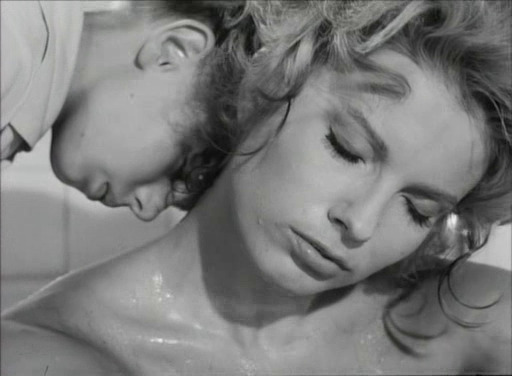
The Silence (Tystnaden) (1963) - dir. Ingmar Bergman
11 notes
·
View notes